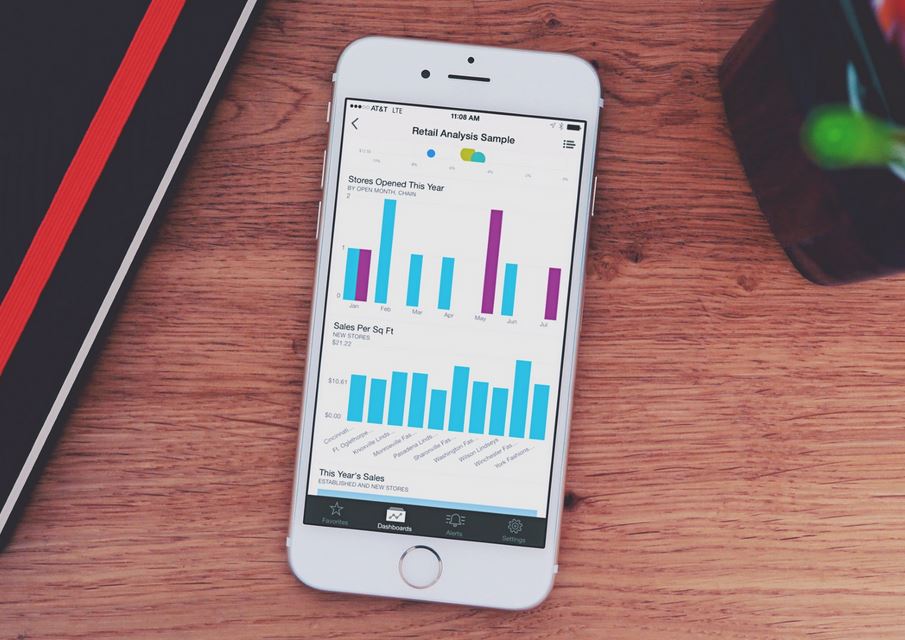
Staying Competitive: How Analytics Powers Mobile App Updates
Mobile applications have seamlessly woven into everyone’s daily routines, offering many choices across various app stores. This abundance, however, has sparked fierce competition among app developers, necessitating the quest for prominence in a crowded marketplace. This article explores the crucial role of analytics in continuous updates and enhancements to maintain a competitive edge.
Significance of user engagement
User engagement serves as the lifeblood of any thriving mobile application. A winning combination of high-quality content, intuitive design, and a seamless user experience is vital for actively engaging users. In this context, analytics emerges as a critical player in effectively deciphering and delivering user desires.
The role of analytics
Analytics, like native app analytics, serve as the bedrock for making data-informed decisions in the realm of app development. This process entails collecting and interpreting user data and unraveling insights into user behavior, preferences, and pain points.
Collecting user data
To harness the potential of analytics, app developers must accumulate diverse data, encompassing user demographics, in-app actions, and user feedback. Google Analytics, Firebase, and Mixpanel are invaluable in this endeavor.
Analyzing user behavior
Once this data is amassed, the next step is to conduct an effective analysis. This step entails tracking user journeys, pinpointing drop-off points, and gaining a nuanced understanding of user interactions within the app. These insights furnish developers with the knowledge needed to make informed decisions.
Key metrics for app success
To ensure your app maintains a competitive edge, vigilant monitoring of key performance indicators (KPIs) is imperative. Here are some pivotal metrics that warrant attention:
User retention rate
User retention is a barometer that measures the percentage of users who continue to engage with your app over time. High retention rates indicate that your app aligns with user expectations.
Conversion rate
The conversion rate indicates the number of users who complete a desired action, whether purchasing or subscribing to a newsletter. The optimization of conversion rates can exert a substantial influence on the success of your app.

Average session duration
This metric provides insights into users’ average duration within your app during a single session. Extended sessions often correlate with heightened user engagement.
Continuous improvement
To stay competitive, mobile app developers must wholeheartedly embrace a culture of ongoing enhancement. Here are some strategies to consider:
A/B testing
A/B testing is a practice that involves the comparison of two versions of an app to ascertain which one performs better. This iterative process aids in the refinement of features and functionalities.
User feedback integration
Listening to user feedback is an invaluable practice. By promptly addressing user concerns and suggestions, developers can augment the user experience and cultivate user loyalty.
Personalization and user experience
Tailoring content
Personalization revolves around delivering content tailored to individual user preferences and behaviors. This practice engenders a more personalized and engaging user experience.
Enhancing the user experience
The provision of a seamless user experience stands as an irrefutable necessity. Analyzing user behavior enables developers to pinpoint pain points and implement necessary refinements.
Competitive intelligence
Monitoring competitors
Remaining vigilant concerning competitors is indispensable. Analyzing their strategies, features, and user feedback can uncover opportunities for differentiation.
Benchmarking strategies
Benchmarking your app’s performance against that of competitors serves as an effective gauge of your standing within the market. This practice highlights areas where your app can shine.
Security and privacy
Protecting user data
The safeguarding of user data takes precedence. Robust security measures must be in place to secure sensitive information.
Compliance with regulations
Adherence to data protection regulations, such as GDPR and CCPA, is essential to sidestep legal complications and maintain user trust.
Optimizing app performance
Reducing load times
The optimization of app performance hinges on the minimization of load times. Users are more likely to abandon slow-loading apps.
Fixing bugs and crashes
Promptly addressing bugs and crashes is crucial to delivering a smooth user experience.
Scaling for growth
Scalability considerations
Preparation for app scalability is imperative to accommodate a growing user base.
Global expansion
Exploring the possibility of expanding your app’s reach to global markets can unlock new user demographics.
Measuring success
KPIs and metrics
Continuously monitoring KPIs and metrics is essential for tracking your app’s performance.
ROI analysis
Conducting a thorough return on investment (ROI) analysis for your app updates ensures their cost-effectiveness.
Last words
Thriving in the fiercely competitive realm of mobile app development hinges on perpetual adaptation and innovation. Analytics, the lighthouse guiding data-informed decisions, elevates the user experience, fuels engagement, and ensures your app’s enduring relevance. By embracing data-driven strategies and staying in tune with user preferences, you can maintain competitiveness and flourish in the dynamic mobile app landscape.




